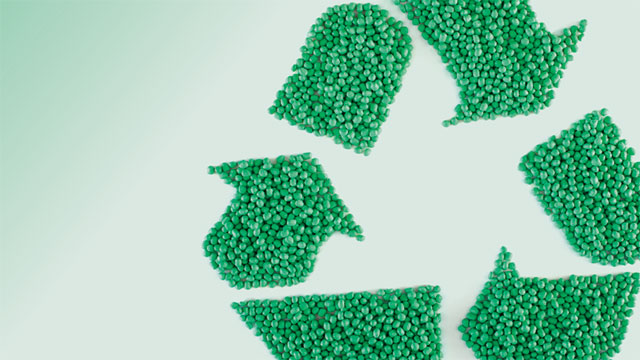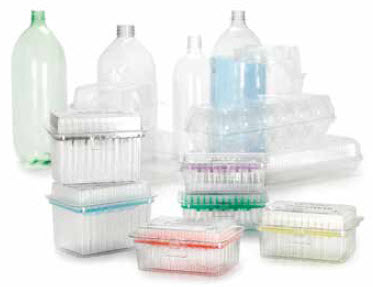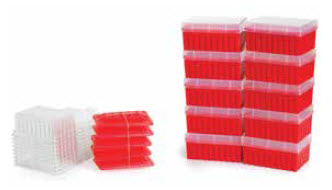How Consumables Manufacturers Can Help Make Labs Greener
By taking a proactive approach, the impact of laboratory waste can be considerably reduced.

Laboratories use large quantities of plastic consumables, much of which is destined to end up as landfill. In the drive to establish a greener working environment, laboratories, consumables manufacturers, and waste contractors are coming together to encourage the adoption of more eco-friendly products and minimize the amount of waste they generate. By taking a proactive approach—from developing lighter and easier-to-recycle products that contain less plastic to simply using fewer consumables—the impact of laboratory waste can be considerably reduced. Recycling companies face many challenges, but there are ways consumables manufacturers can help.
In recent years, the San Francisco Bay Area has seen considerable growth in the biotech arena. For this booming industry—with new laboratories opening and others expanding—working toward a green environment is a priority; companies want to know how to minimize the amount of waste they send to landfills and look to consumables manufacturers and waste contractors to help them. Teresa Montgomery, sustainability manager at South San Francisco Scavenger Company (SSFSC), describes her company’s policy, “The South San Francisco Scavenger Company complements its garbage collection service with a free-of-charge recycling option. Including the service at no extra cost encourages recycling; people are far more inclined to participate in a scheme that is free of charge.
 TerraRacks are made from widely used and easy to recycle PETE plastic“This approach has been very successful locally, with individuals and companies alike adopting a very positive attitude toward minimizing waste. Paper is separated before collection, then baled and shipped out to specialist companies to be transformed into new paper products. Cans, glass, and plastic, however, are delivered as mixed recyclables, which must be carefully sorted to separate the different materials. This is quite a labor-intensive process, as a degree of manual intervention is still necessary even when using automated systems such as air streams, magnetic separation, and shaking.”
TerraRacks are made from widely used and easy to recycle PETE plastic“This approach has been very successful locally, with individuals and companies alike adopting a very positive attitude toward minimizing waste. Paper is separated before collection, then baled and shipped out to specialist companies to be transformed into new paper products. Cans, glass, and plastic, however, are delivered as mixed recyclables, which must be carefully sorted to separate the different materials. This is quite a labor-intensive process, as a degree of manual intervention is still necessary even when using automated systems such as air streams, magnetic separation, and shaking.”
A perpetual problem in the ever-expanding biotech industry is the disposal of plastic consumables, which waste contractors are actively encouraging laboratories to reuse and recycle rather than dispose of them with regular waste. Laboratories have really embraced the idea and are keen to recycle as many of these items as possible—particularly pipette trays and racks, which account for a large quantity of their waste in both weight and volume. Historically, this has presented difficulties for waste contractors. “Some years ago, SSFSC considered accepting pipette trays and racks for recycling, but was unable to do so for a number of reasons; they were constructed from mixed plastic and did not lend themselves to baling, and, even if this could be achieved, there was uncertainty about how they could be marketed,” Montgomery explains. “As they had been used in laboratories, there was also concern that they could be contaminated with hazardous materials. A few companies did offer a low-cost collection service for this type of plastic but, when the petroleum market fell, this came to an end.”
A significant number of laboratories all over the US, as well as in the local area, use pipette racks manufactured by Rainin Instrument (Oakland, CA). In line with the pipette and lab supply company’s green environmental policies—which include the recent introduction of the eco-friendly TerraRack™ pipette tip racks—it made sense for the company to work with SSFSC to spread the message to reduce, reuse, and recycle as much as possible. With so many biotech companies in the area, this is a crucial message to get across, and word is spreading quickly throughout the community. It makes economic sense too. Although light in weight, pipette racks—even nested trays that can be stacked—occupy a lot of space. As a result, more storage bins are required, which increases the bill for waste disposal when charges are based on waste volume.
 The eco-friendly TerraRack pipette tip racks are light in weight, stackable, and easily compressed compared to conventional tip racksThe promotion of plastic recycling by waste contractors and manufacturers is complemented by laboratories striving to establish a green mentality internally, ensuring that every employee understands why it is critically important to reduce plastic waste output. They are looking at the overall picture, focusing on the 4 R’s—reduce, reuse, recycle, and rot—for compost. “Staff should always be encouraged to use responsible suppliers; for example, opting for companies that deliver supplies on reusable pallets and avoid Styrofoam packing,” Montgomery comments. “The use of more eco-friendly consumables that are made from thinner, lighter-weight plastic that are also easy to compress and recycle helps too. By refusing to use irresponsibly made or packaged products, laboratories eliminate the need to recycle them.”
The eco-friendly TerraRack pipette tip racks are light in weight, stackable, and easily compressed compared to conventional tip racksThe promotion of plastic recycling by waste contractors and manufacturers is complemented by laboratories striving to establish a green mentality internally, ensuring that every employee understands why it is critically important to reduce plastic waste output. They are looking at the overall picture, focusing on the 4 R’s—reduce, reuse, recycle, and rot—for compost. “Staff should always be encouraged to use responsible suppliers; for example, opting for companies that deliver supplies on reusable pallets and avoid Styrofoam packing,” Montgomery comments. “The use of more eco-friendly consumables that are made from thinner, lighter-weight plastic that are also easy to compress and recycle helps too. By refusing to use irresponsibly made or packaged products, laboratories eliminate the need to recycle them.”
The key to success is to make the process of plastic recycling as easy and straightforward as possible, with conveniently located containers for recyclables close to work areas. A busy scientist is unlikely to be inclined to make the effort to leave the laboratory solely to place a pipette rack in a recycling bin elsewhere on the site; it is more likely the rack will be placed in the nearest garbage container. A consistent site-wide approach should be adopted with specific triggers to generate the correct response, such as using color coding or attaching an image to each container. For instance, if every plastic recyclables container in the building is blue or displays an image of a pipette rack, there is no ambiguity about where to place this type of waste. “Above all, it is vital to make sure that every single employee, whatever their position in the company, fully understands the process. Failure to do so can easily result in recycling containers being emptied into the garbage bins in error when the janitor cleans the laboratory, completely defeating the green initiative,” Montgomery says.
By following these simple guidelines, laboratories can continue to work with consumables manufacturers like Rainin and waste contractors like SSFSC to develop successful waste reduction and recycling programs, establishing a practical and cost-effective green solution to the plastic waste conundrum.

